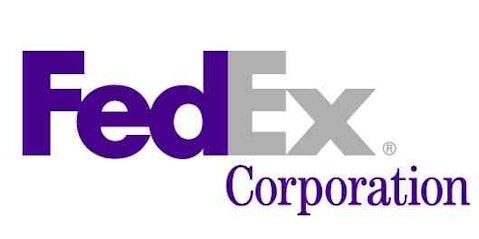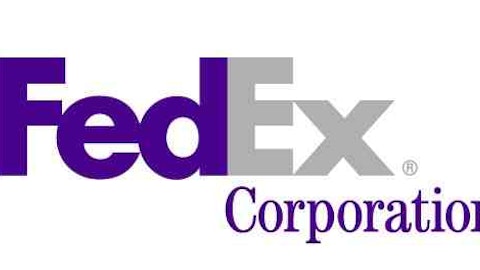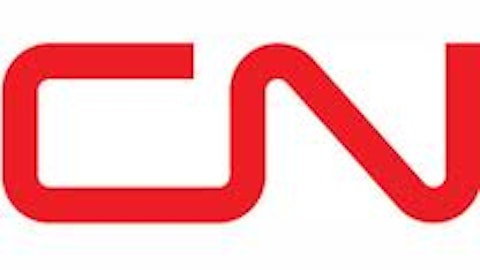Recently, FedEx Corporation (NYSE:FDX) released stronger-than-expected fourth-quarter earnings results. The market has sent its shares up by nearly 1.3%, to nearly $101 per share. However, since the beginning of the year, FedEx Corporation (NYSE:FDX) gained only 9.6%, much less than the S&P 500’s return of 14.2%. Let’s take a closer look to determine whether or not FedEx could be a good buy at its current price.

Better-than-expected operating results
In the fourth quarter, FedEx Corporation (NYSE:FDX) experienced a 4% growth in revenue, to $11.4 billion, just a bit below analysts’ estimates of $11.46 billion. Its net income fell sharply by 45%, from $550 million, or $1.73 per share in the fourth quarter last year, to only $303 million, or $0.95 per share in the same quarter this year. According to FedEx, if the non-cash aircraft impairment charge and the business realignment program charges were excluded, the adjusted EPS would come in at $2.13 per share, exceeding analysts’ expectations of $1.96 per share.
For the full year 2014, FedEx Corporation (NYSE:FDX) expects to deliver 7%-13% growth in the company’s adjusted EPS, assuming the current market outlook for fuel prices and a capital expenditure of around $4 billion. Alan Graf Jr., the company’s CFO, mentioned that he saw pricing pressures in the current market, as customers turn to lower-rate international services. In July, FedEx would reduce the firm’s capacity in both the U.S. and Asia. FedEx is trading at around $100.50 per share, with the total market cap of $31.8 billion. The market values FedEx at only 5.6 times its trailing EBITDA (Earnings Before Interest, Taxes, Depreciation and Amortization).
FedEx is the cheapest stock among its peers
Compared to its peers, including United Parcel Service, Inc. (NYSE:UPS) and Deutsche Post, FedEx Corporation (NYSE:FDX) seems to be the cheapest. Deutsche Post is trading at $26.20 per share, with the total market cap of $31.7 billion. The market values Deutsche Post at a higher valuation than FedEx Corporation (NYSE:FDX), at 9.3 times its trailing EBITDA. In the first quarter 2013, Deutsche Post managed to grow several businesses, including Parcel Germany, Express TDI, Forwarding/Freight and Supply Chain. Its EBIT increased by 2.9%, from about $908 million in the first quarter last year to about $934 million this year. The improvement in the company’s EBIT was mainly due to the improvement in DHL Express business. For the full year 2013, Deutsche Post estimated that it could generate consolidated EBIT in the range of $3.55 billion to $3.88 billion.
United Parcel Service, Inc. (NYSE:UPS) is the most expensively valued company among the three. At $86.40 per share, United Parcel is worth $81.60 billion on the market. The market values UPS at as high as 27.4 times its trailing EBITDA. In the first quarter 2013, UPS also posted a stronger-than-expected earning results, thanks to UPS e-commerce solutions. Its diluted EPS came in at $1.08 per share, 8% higher than $1 per share in the first quarter last year. Its CFO Kurt Kuehn commented that UPS e-commerce would continue to drive the company’s operating results, along with the increasing omni-channel retailing. Currently, United Parcel Service, Inc. (NYSE:UPS) has around more than 25 big retailers turning to UPS omni-channel solutions, which could help them to optimize their inventories and have fewer markdowns. For the full year 2013, UPS expected low single-digit growth. Despite the weak macro environment, it reaffirmed its 2013 adjusted EPS estimate of $4.80-$5.06 per share, 6%-12% higher than last year’s adjusted EPS.


